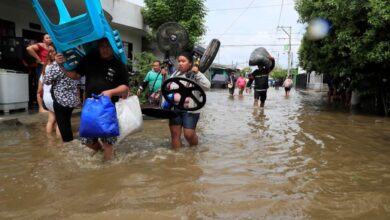Odebrecht Continues to Splash in Colombian Politics
Latin America’s most controversial corruption case is back in the limelight in Colombian politics.

Photo: Reuters
LatinAmerican Post | July Vanesa López Romero
Escucha este artículo
Leer en español: Odebrecht sigue salpicando la política de Colombia
In mid-June, the Colombian Prosecutor’s Office announced the indictment of former presidential candidate óscar Iván Zuluaga for allegedly financing part of his campaign in 2014 with illegal money from the Brazilian construction company Odebrecht, now known as Novonor. He is accused of three crimes: falsification of private documents, procedural fraud, and illicit enrichment.
According to the Attorney General’s Office, Zuluaga received $1.6 million, never reported to the National Electoral Council. As a result, the agency opened an investigation against him in 2016, but it was closed due to a lack of evidence linking him to Odebrecht. However, the same year, the Attorney General’s Office announced that it had sufficient evidence. Likewise, the indictment would fall on David Zuluaga, son of the former Colombian right-wing candidate. It is worth noting that due to this scandal, in 2018, Zuluaga was replaced by Iván Duque in the presidential race on behalf of the Democratic Centre. Likewise, his candidacy in 2022 went unnoticed.
Also read: What is New about this Pact Between the Colombian Government and the ELN Compared to Previous Ones?
In addition to this, Cecilia álvares, the former Minister of Transport of the government of Juan Manuel Santos, who defeated Zuluaga in the 2014 elections, will also be charged for the failures and millionaire additions of the Ruta del Sol II, which are allegedly related to the financing of Santos’ presidential campaign. This scenario revives the Odebrecht case and shakes Colombian politics.
Odebrecht Continues to Manifest in Colombia
In December 2016, Brazilian multinational Odebrecht pleaded guilty in a US court to have delivered more than $788 million to governments, political parties, and public officials across Latin America. This was to obtain and retain infrastructure contracts.
The case exploded and began to splash different governments in the region. In the case of Colombia, receiving foreign funding for political campaigns is illegal, and the consequences are still manifesting themselves almost 10 years after the campaigns were allegedly financed.
The recent indictments announced by the Prosecutor General’s Office allowed the 2014 presidential campaigns to be scrutinized again. That is to say, the campaign of Juan Manuel Santos is also under scrutiny, especially after the indictment of álvarez. Recall that the Ruta del Sol, a project that has been under construction for more than 30 years, remains unfinished to this day, and the work was put on hold more than a year and a half ago because of the corruption problems surrounding it.
But the reopening of these corruption cases not only calls into question the 2014 campaigns but also those of 2018 and 2022. Last year, investigations into Iván Duque’s campaign were announced, and this year the Attorney General’s Office announced that Petro’s campaign would be investigated. In the latter’s case, several gaps were found in the accountability submitted by the current president to the National Electoral Council. According to La Silla Vacía, the presence of three main strategists: Antoni Gutierrez-Rubi, Javier Brendel, and Vinicio Alvarado, is not reported.
In short, the investigation into Zuluaga opens the door to further investigations into other campaigns. Furthermore, this opening would be related to pressure from the United States to move forward with the investigations, which goes hand in hand with the arrival of the FBI to follow up on them. It should be clarified that the date of arrival of the US organization has yet to be defined.




